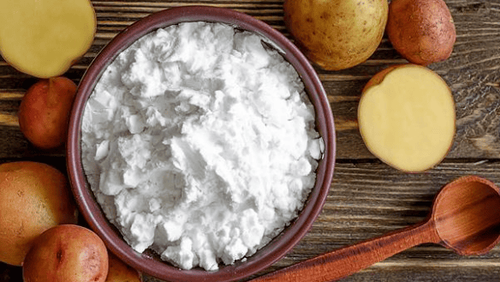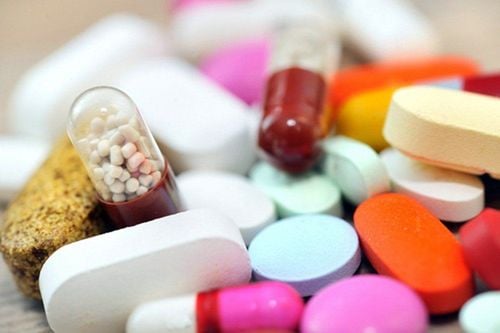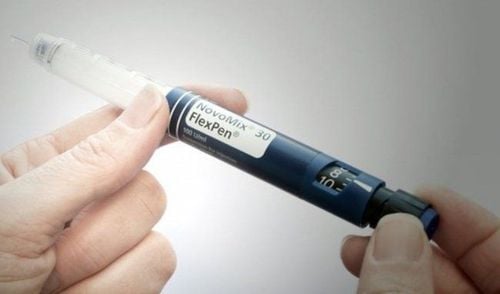This is an automatically translated article.
The article is professionally consulted by Master, Doctor Nguyen Thi Ngoc - General Internal Medicine - Endocrinology - Department of Examination & Internal Medicine - Vinmec Central Park International General HospitalSugar and sugar-containing foods are an important source of nutrients and energy for human activities. However, a lot of people eat sweets uncontrollably, leading to an excess of sugar. This situation, if left untreated, will cause many health consequences.
1. Signs the body is having too much sugar
Foods containing a lot of sugar such as, candies, soft drinks, sweet fruits... will have excess sugar, a prolonged state will cause the body to have excess sugar.. When the body has too much sugar, you will You can see the following signs:
Constantly feeling hungry High blood sugar prevents glucose from entering cells. As a result, the body does not receive energy and requires food over and over again. It is a vicious cycle that makes the body feel hungry all the time.
Constantly feeling tired When blood sugar is high, the body cannot store and absorb glucose properly. Energy is used inefficiently, and body cells do not receive the fuel they need. This has made the body always feel tired for no reason.
Frequent urination If blood sugar is too high, the kidneys will have to work too hard to reabsorb fluids. This leads to the body always trying to balance the concentration of glucose in the blood and in the cells, dissolving the blood with the intracellular fluid, thus increasing the normal glucose concentration. This leads to frequent urination.
Feeling dry mouth, excessive thirst Frequent dry mouth is a sign of severe dehydration. When the body is dehydrated, it causes constant thirst.
Lose weight quickly In a short period of time if you suddenly lose weight even after eating a lot and high calorie foods. This sign shows that your blood sugar level is problematic.
Infectious Diseases High blood sugar can lead to urinary tract infections (UTIs), skin infections, and yeast infections that can occur in both men and women.
Blurred eyes Too much sugar in the body will also lead to blurred vision. This is the result of a dehydrating effect due to high blood sugar, which also affects the cells of the eye.
Slow healing of wounds and cuts Those who have excess blood sugar, if unfortunately have a wound, it takes a long time to heal. This leads to a worsening of blood circulation, especially in the limbs, and a lack of nutrition of the tissues.
Headaches, distraction, frequent irritability According to many scientific studies, people with high sugar are more anxious, irritable and tend to be depressed. By the brain depends on an equal supply of glucose, and leaps of the level negatively affect its work. As a result, our mood suddenly gets worse.
Digestive disorders such as constipation or diarrhea Nerve damage that causes feet to lose feeling, become cold or erectile dysfunction Eat more sugar than needed (eating a lot of rice, candy, soft drinks, sweet fruits) ...) then the excess sugar will be stored as fat in the body. If this diet is prolonged, you will be overweight and obese.

Ăn nhiều đường dẫn tới nguy cơ béo phì, thừa cân
2. How to determine the amount of sugar in the daily diet
Sugar is the main ingredient to create energy for the body to function. There are three types of lines: single, double, and complex.
Of the total energy from a meal, carbohydrates account for 55-65% (the rest is protein and fat). In which, complex sugar (from rice, sticky rice, bread, potato, corn...) should account for 70% of total sugar put into the body, double sugar form. Simple sugars should be less than 5% of the total energy. An accurate way to determine the amount of sugar in the daily diet is through measuring the glycemic index.
For most healthy people, a normal blood sugar reading is:
Normal blood sugar in the body is about 4 mmol (4 mmol/L or 72 mg/dL) When normal body function is restored a blood sugar reading of about 4.4 – 6.1 mmol/L (82 – 110 mg/dL) A short time after eating blood sugar can temporarily rise up to 7.8 mmol/L ( 140 mg/dL) For people with diabetes, blood sugar is as follows:
Before meals: 4 – 7 mmol/L (72 mg/dL - 128 mg/dL) for patients with type 1 or type 2 After meals: less than 9 mmol/L for patients with type 1 and 8.5mmol/L for patients with type 2. Thus, if your blood sugar reading before and after eating is abnormally high as above It means your body has an excess of sugar.

Chất bột cũng chiếm lượng đường lớn nạp vào cơ thể
Each person can calculate and determine the amount of sugar in the daily diet through the amount of sugar contained in the following commonly used foods each day:
1 cup of rice contains about 45-50g of starch (containing complex sugars). ), providing 180-200 Kcal 1 sweet potato about 160g contains 45g of powdered sugar 1 teaspoon of granulated sugar contains 4g of sugar (the scoop will contain 8g) 1 tablespoon of granulated sugar (the 8ml spoon used to eat pho) contains 6g of sugar (with a spoonful of 14g) Soft drinks (including canned juice, lemon soda, bottled lemon tea, carbonated soft drinks) contain 10-14g of sugar per 100g of product. More energy drinks, up to 19g of sugar / 100g of product. Thus, with just a 330ml can of soft drink (containing about 34g of sugar), your body has consumed an excessively high amount of sugar compared to the allowed level in a day.
In particular, sweetened milks contain about 6-10g of sugar per 100g of product (the highest amount of sugar in chocolate-flavored milk). Yogurt also contains about 10g/100g of product. Therefore, although milk is a recommended food, if used regularly, your body will consume a fairly high amount of sugar.
With products, manufacturers must clearly print the amount of sugar as well as other nutrients in 1 unit of product. This is very important for you to plan your meals to control your daily sugar intake.
Therefore, consumers also need to get into the habit of reading product labels when choosing to use. Parents also practice for their children the habit of eating less salty and less sweet in their daily diet to protect long-term body health. Children are very fond of eating sweets and candies, so they need to limit them from an early age.
Thus, it is difficult to recognize early signs that the body is having too much sugar, so it is important and first priority that each person needs to consciously implement a diet with a sufficient amount of sugar every day. In addition, you should also have regular health checkups, do blood tests to check blood sugar to know the body's sugar consumption status.
Please dial HOTLINE for more information or register for an appointment HERE. Download MyVinmec app to make appointments faster and to manage your bookings easily.













